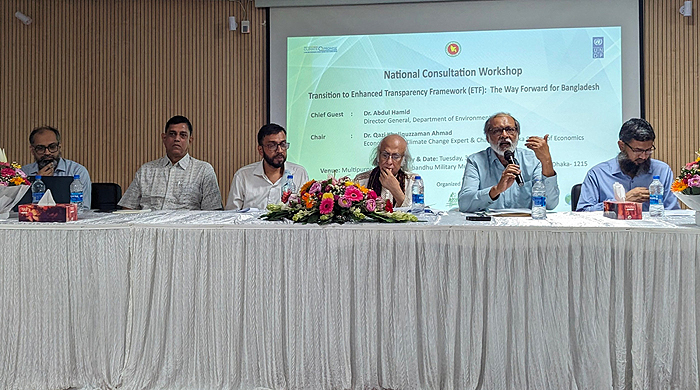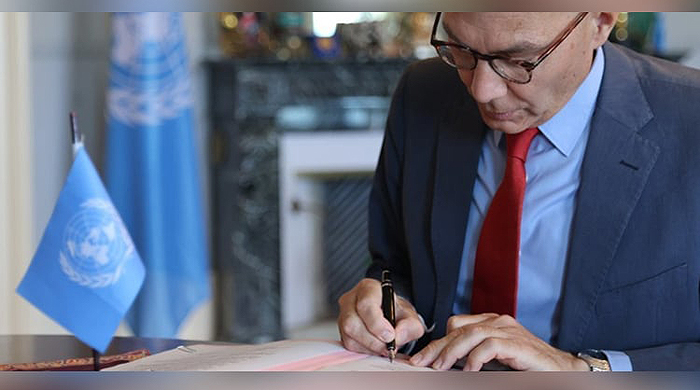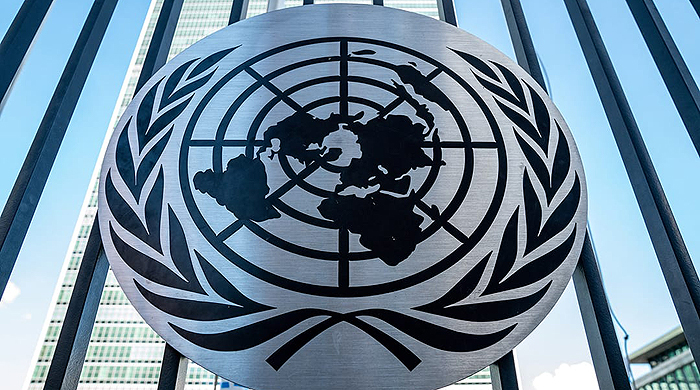Khondaker Abdul Motin, Editor, DHAKA, April 30, 2024 - Climate experts and environmentalists convened at a national workshop to underscore the necessity for Bangladesh to adopt a clear and transparent system for calculating greenhouse gas (GHG) emissions.
Dr. Ainun Nishat, Professor Emeritus and Advisor of C3ER at BRAC University, stressed the importance of realistic emission data in achieving the Net Zero Target by 2050. He advocated for a shift from the logical framework approach (LFA) towards the theory of change based on monitoring data.
The Ministry of Environment, Forest, and Climate Change (MoEFCC) and the United Nations Development Programme (UNDP) jointly organized the workshop under the 'Climate Promise - From Pledge to Impact' project.
The National Workshop on 'Transition to Enhanced Transparency Framework (ETF): The Way Forward for Bangladesh' took place at the Bangabandhu Military Museum in Dhaka, as per a UNDP press release.
The workshop aimed to engage sectoral experts, relevant ministries, and line agencies in a dialogue to explore opportunities and identify capacity enhancement needs to establish transparent GHG accounting and tracking mechanisms.
UNDP Programme Specialist Arif Faisal emphasized the importance of transparency in GHG inventory, crucial for upholding environmental integrity within the Paris Agreement. He highlighted Article 13 of the Paris Agreement as instrumental in shaping the formation of the ETF, aiming to foster mutual trust and confidence while enhancing effective implementation.
Md Mahmud Hossain, Deputy Director of the Department of Environment (DoE), outlined the critical importance of establishing an ETF for Bangladesh under Article 13 of the Paris Agreement. He highlighted the government's implementation of the Capacity Building Initiative for Transparency project, aimed at strengthening institutional and human capacities to meet ETF requirements and track progress in priority actions identified in Bangladesh's Nationally Determined Contributions (NDC).
Executive Director of Nature Conservation Management (NACOM), Dr. SM Munjurul Hannan Khan, presented insights on 'ETF: Global and National Transparency Perspective and Insight.' He emphasized the dual benefits for Bangladesh - nationally, aiding political acceptance, informed policy processes, capacity building in reporting, and awareness raising; internationally, fostering trust, meeting international obligations, enhancing ambition, and prioritizing support.
Institutional arrangements for the ETF will involve government ministries, academic institutions, and the private sector, Khan noted.
Moderating the open discussion, Dr. Qazi Kholiquzzaman Ahmad, Economist and Chairman of Dhaka School of Economics (DSE), emphasized the need for Bangladesh to establish a fully functionalized measurement, reporting, and verification (MRV) system, enhanced institutional arrangements, and implementation of the ETF roadmap.
A consortium led by Nature Conservation Management (NACOM), in partnership with the Centre for Climate Change and Environmental Research (C3ER), BRAC University, and the International Centre for Climate Change and Development (ICCCAD), is facilitating the implementation process.











